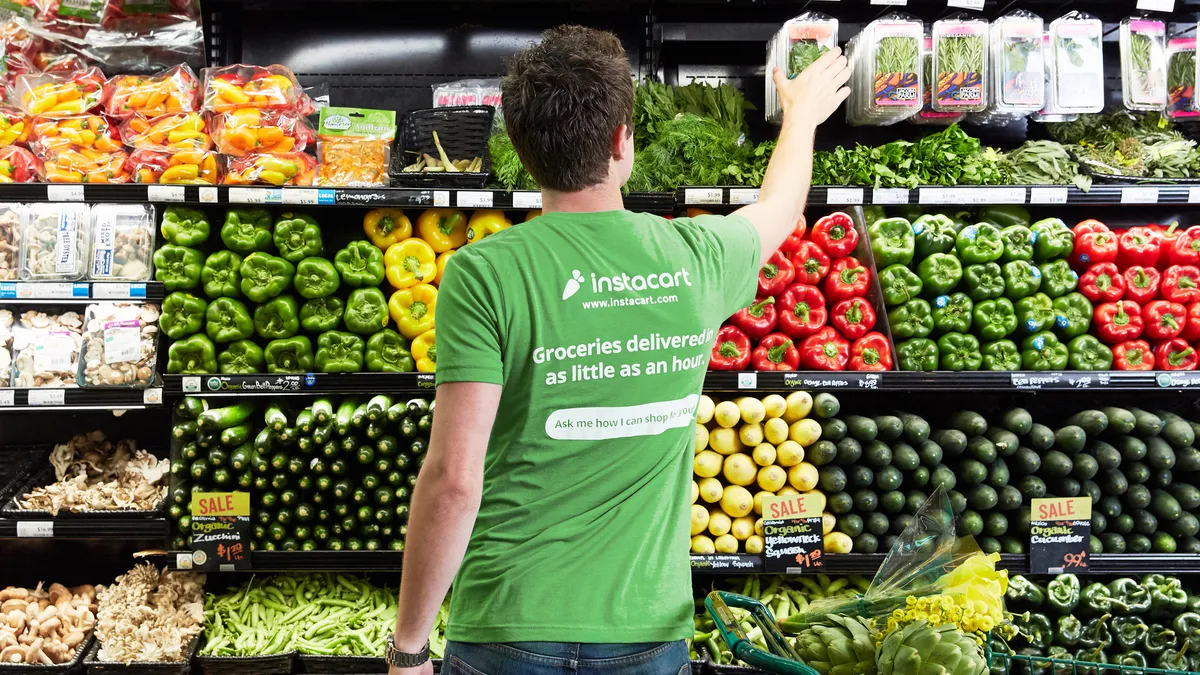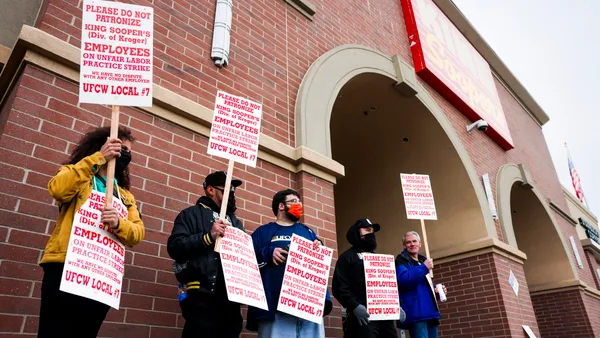Dive Brief:
- Instacart announced Thursday it has raised $225 million in new funding, bringing its total valuation to $13.7 billion, according to a company press release. The round was led by DST Global and General Catalyst, with existing investor D1 Capital Partners participating.
- The company said it will use the funding, which comes during a time of unprecedented demand, to add new services and features, better support its shopper community, and scale its operation and technical infrastructure to meet surging customer growth.
- "We have ambitious plans for the future and this new investment enables us to deepen our support for our shoppers and partners, further fund strategic initiatives such as our advertising and enterprise businesses, and continue to deliver exceptional experiences for customers," Apoorva Mehta, Instacart's founder and CEO, said in a statement. "This pandemic has fundamentally reshaped the way people think about grocery and ecommerce."
Dive Insight:
Instacart has shown a knack for capitalizing on industry disruption. Following Amazon's acquisition of Whole Foods three years ago, the tech firm moved swiftly to sign grocers up for its e-commerce services. Now, Instacart is riding a wave of online grocery demand driven by the COVID-19 pandemic.
Beginning in March, the company added hundreds of thousands of new workers, quickly doubling its personal shopper workforce. Customer wait times, which spiked in late March and early April as people shifted their shopping online, came down as a result. By mid-May, 90% of Instacart orders were delivered same-day or next-day.
The company's ability to quickly recruit and onboard gig workers likely helped it gain market share over competitors like Walmart and Amazon. According to Second Measure data cited by The Information, Instacart claimed 57% of the online grocery market in April.
Known primarily as a delivery company, Instacart has expanded its pickup services as usage has surged. Sprouts Farmers Market now offers click-and-collect via Instacart nationwide, and last month Aldi expanded pickup to nearly 600 stores in 35 states.
At the same time that retailers have extended their services and consumer usage has grown, Instacart has also signed on new retailers, including Big Lots, Bi-Lo and office supply company Staples. It has also partnered with C&S Wholesale Grocers to offer its services to the more than 3,000 independent grocers supplied by the distributor.
Between the latest funding news and recent growth in order volume as high as 500% year-over-year amid the COVID-19 pandemic, Instacart is well-positioned to extend its already massive reach. Currently, grocery delivery from Instacart is available to more than 85% of U.S. households and from more than 30,000 retail locations in the U.S. and Canada.













